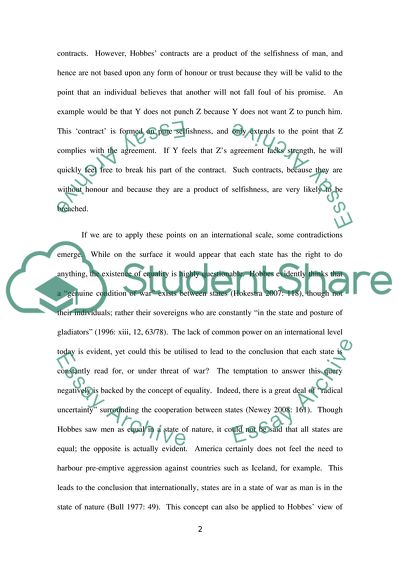Cite this document
(Hobbes' Theory of the State of Nature and Internationalism Literature review Example | Topics and Well Written Essays - 1500 words, n.d.)
Hobbes' Theory of the State of Nature and Internationalism Literature review Example | Topics and Well Written Essays - 1500 words. https://studentshare.org/social-science/1759915-would-it-be-accurate-to-say-that-for-hobbes-the-international-sphere-the-relations-between-states-is-a-state-of-nature
Hobbes' Theory of the State of Nature and Internationalism Literature review Example | Topics and Well Written Essays - 1500 words. https://studentshare.org/social-science/1759915-would-it-be-accurate-to-say-that-for-hobbes-the-international-sphere-the-relations-between-states-is-a-state-of-nature
(Hobbes' Theory of the State of Nature and Internationalism Literature Review Example | Topics and Well Written Essays - 1500 Words)
Hobbes' Theory of the State of Nature and Internationalism Literature Review Example | Topics and Well Written Essays - 1500 Words. https://studentshare.org/social-science/1759915-would-it-be-accurate-to-say-that-for-hobbes-the-international-sphere-the-relations-between-states-is-a-state-of-nature.
Hobbes' Theory of the State of Nature and Internationalism Literature Review Example | Topics and Well Written Essays - 1500 Words. https://studentshare.org/social-science/1759915-would-it-be-accurate-to-say-that-for-hobbes-the-international-sphere-the-relations-between-states-is-a-state-of-nature.
“Hobbes' Theory of the State of Nature and Internationalism Literature Review Example | Topics and Well Written Essays - 1500 Words”. https://studentshare.org/social-science/1759915-would-it-be-accurate-to-say-that-for-hobbes-the-international-sphere-the-relations-between-states-is-a-state-of-nature.


